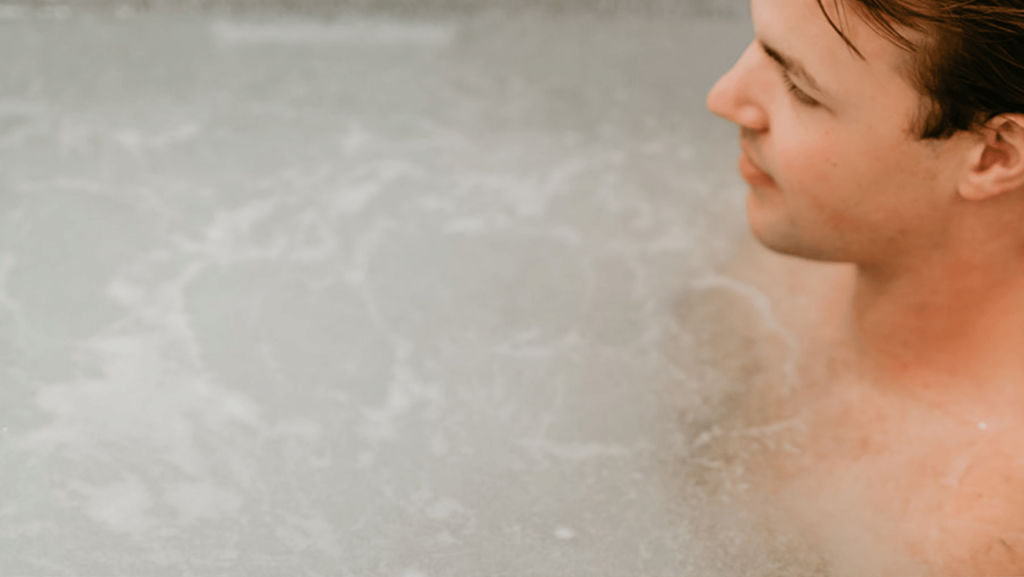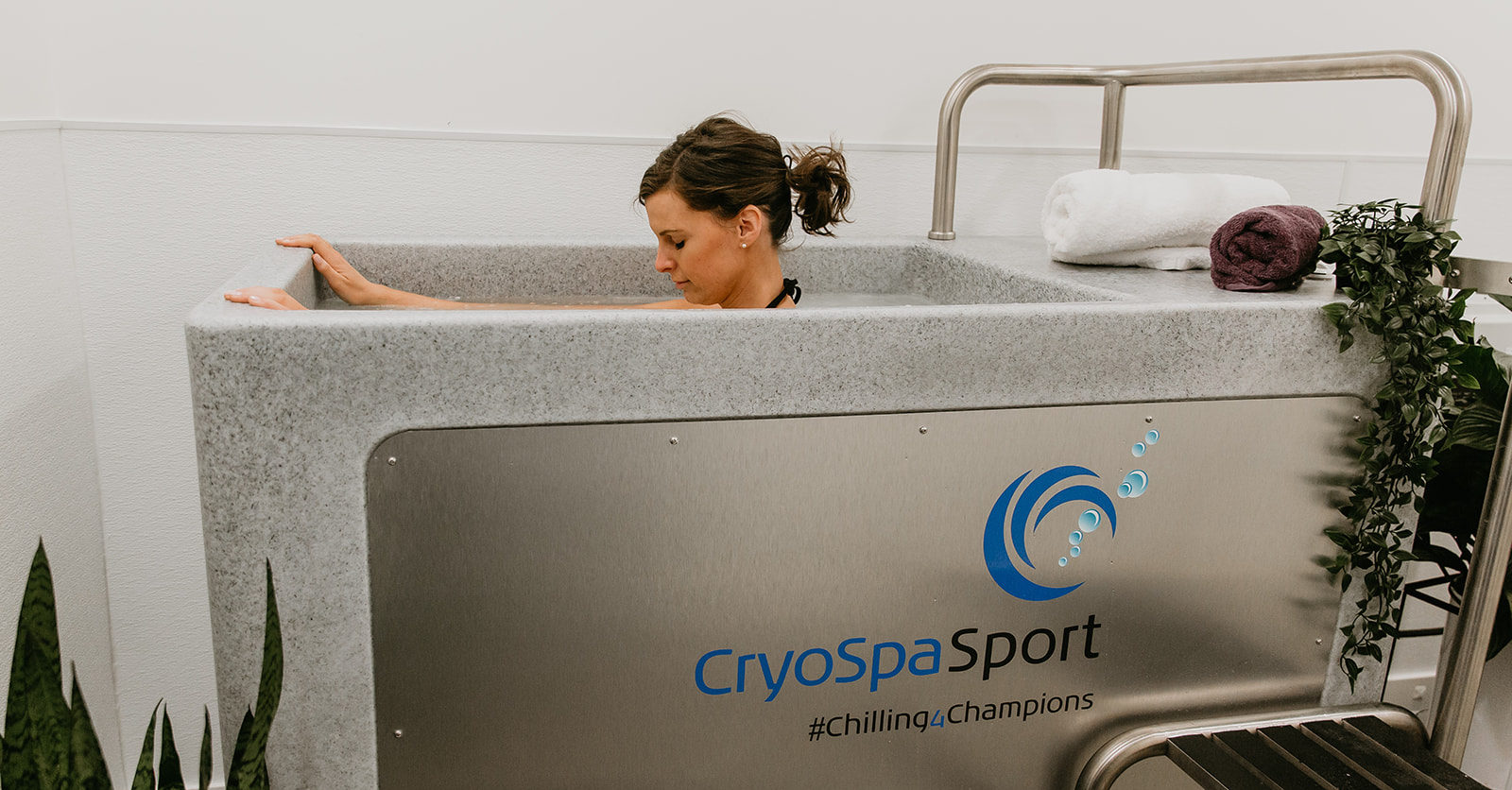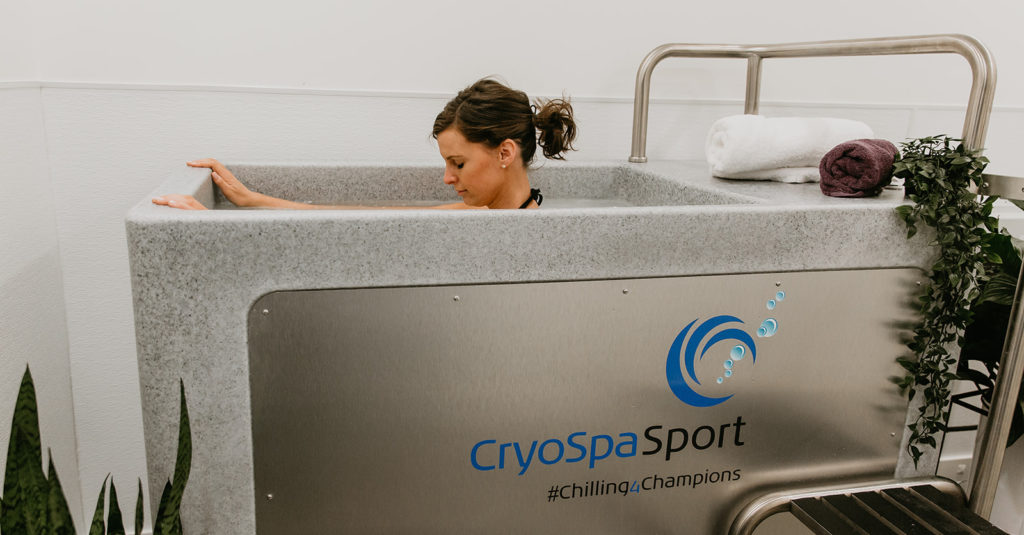If you have ever experienced a bump or bruise during a workout or sports, it’s common advice to ice the area to reduce swelling and pain. Cold therapy has been around for a long time—many people use it for recovery alongside stretching. However, not many people are aware of the possible mental health benefits of this treatment.
Cold water therapy can help boost alertness, increase dopamine production, and potentially reduce anxiety and depression symptoms. While research is always evolving, there are previous studies supporting these benefits.
Cold water therapy, also known as the cold plunge, may be right for you, whether for the physical or mental benefits.
What Is Cold Water Therapy?
Cold water therapy is the process of exposing yourself to cold temperatures to help the body recover, typically after a workout or sports. There are many ways to cool down the body, whether in a cold shower, ice bath, outdoor swimming, or a cold water soak at a sports therapy office.
Cold water therapy can help reduce inflammation in your joints and muscles. You may benefit from this treatment if you have:
- Back pain
- Joint pain
- Arthritis
- Muscle pain
- Injuries
- Tendon or ligament issues
- Chronic pain
- Post-exercise soreness
- Significant stress
Ice Bath Temperature for Maximum Benefits
Cold water therapy is a simple process—it involves exposing yourself to water sitting around 14–15 degrees Celsius, whether you fully submerge yourself in a bathtub or take a cold shower.
The water needs to sit at this temperature to help you experience the benefits of cold water therapy—it only takes a few minutes.
At water under 14 degrees Celsius, as little as 2 minutes can help achieve a mental health benefit. Up to 260% increased dopamine release, up to 530% increased norepinephrine release and a decrease in Cortisol that can last up to 5 days. 4 minutes can achieve a physical benefit.
What Are the Benefits of a Cold Plunge?
Many patients seek out this cold water therapy for the benefits it can provide, including:
- Reduced muscle soreness: Cold water can help constrict your blood vessels, reducing blood flow to the cooled area. Many doctors suggest icing an injury to reduce swelling and inflammation. If you’re using cold water therapy to help your muscles recover, don’t forget that other strategies, like stretching and massage, are important for your recovery.
- Immune system boost: Some researchers believe that exposure to cold water can help improve the body’s immune system to fight sickness.
- Quick cooldown if you’re overheated: Cold water therapy can help lower your body temperature quickly, which can be helpful on a hot summer day or after an intense workout.
Is Cold Water Therapy Safe?
Cold water therapy is safe when used in the proper environment, such as a professional’s office or your shower. Some adventurous people may take a cold plunge in a lake, and there are higher risks in these situations.
Sitting in a small cold tub or standing in your shower is safe. However, cold water therapy isn’t for everyone. This treatment isn’t ideal for patients with circulation issues or decreased blood flow. Ensure you speak to your doctor before seeking cold water therapy treatment if you have high blood pressure, diabetes, or cardiovascular disease.

What Are the Mental Health Benefits of Cold Water Therapy?
Cold water therapy may help boost your mood by increasing dopamine production temporarily. Dopamine is the hormone that makes you feel happy and alert throughout the day.
Besides boosting dopamine, cold water therapy may help ease depression symptoms. Some studies have found a potential relationship between regular cold water exposure and improved mental health.
Cold water therapy helps improve blood circulation, which may help ease anxiety. Anxiety can raise your blood pressure, and the increased circulation from cold water therapy can potentially reduce anxiety.
How Can You Try Cold Water Therapy Yourself?
If you’re interested in cold water therapy but want to test it before booking an appointment, take a cold shower at home. Besides helping you wake up if you’re tired, a cold shower can provide similar benefits to a cold plunge.
Follow some of these safety tips if you wish to try cold water therapy at home:
- Speak with your doctor before trying a cold shower or swim: Speaking with your doctor before attempting cold water therapy is essential. They can review your medical history and determine if this treatment is safe.
- Warm up after you’re done: Body temperature can continue to drop even when you’re out of the water. Dry off, wear warm layers, and rest somewhere warm or walk around to raise your body temperature.
- Don’t stay cold for too long: Staying in cold water during a shower or swim should be brief. You only need a few minutes to experience the benefits of this treatment.
- Have someone with you: Especially for the first time, keep a friend or family member nearby to ensure you’re okay, especially if swimming.
Try Cold Water Therapy Today
Whether for the mental or physical benefits, cold water therapy might be what you need. Try taking a short, cold shower, or contact Recovery Lab for a consultation. We can discuss your needs and determine if cold water therapy is ideal for you.
Contact us at Recovery Lab in Red Deer if you’re interested in cold water therapy.



